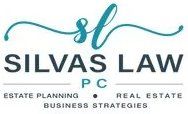Year-End Tax Tactics: Strategies to Lower Your 2023 Business Tax Bill - Part 2
Last week in Part 1, we looked at four methods you can use to save money on your 2023 business tax return:
- Make large purchases for your business before December 31
- Defer business income until next year
- Accelerate business expenses to this year, and
- Contribute to your employee HSA accounts
This week, I share more ways end-of-year tax planning can lower your business tax bill while helping your team members and community as a whole.
If you aren’t sure if your company needs to lower its tax liability this year, don’t worry. We can help organize your business assets and profit and loss statements so you can make smart, educated decisions for your business’s financial future.
Let’s begin.
5 | Make Charitable Contributions
Giving back to your community or supporting causes you care about is not only rewarding but can also provide tax benefits for your business. If it looks like your business will owe taxes this year and doesn’t have an immediate need for new equipment or materials, this may be a great time to contribute to a charitable organization that is important to you.
Doing so will help support a good cause and allow you to deduct the donation from your company’s taxable income. You can also use the donation as an advertising opportunity. Schedule a company fundraising event or get into the community and agree to match donations made by other businesses. This will double the benefit the charity receives and create more awareness of your business in the community.
If you make any charitable donations, keep detailed records of your donations, including receipts and acknowledgments from the charities. If you donate non-cash items (such as clothing, household goods, or materials) make sure to document their fair market value.
If you aren’t sure how to document your donations or aren’t sure if a charitable donation will be advantageous to your business this year, be sure to discuss this with your tax professional.
6 | Consider Tax-Loss Harvesting
Tax-loss harvesting is a strategy designed to offset capital gains by selling underperforming investments. This technique can help you minimize the taxes your company owes on investment gains.
The first step is to identify investments in your company’s portfolio that have experienced losses and then sell those investments to realize the losses. By selling underperforming investments, you can now use the lost capital to offset any capital gains from other company investments that are doing well.
It's important to remember that there are rules and limitations when it comes to tax-loss harvesting. Consult with a financial advisor or tax professional to ensure you execute this strategy correctly and in a way that aligns with the overall financial goals of your business.
7 | Deduct Financing Costs
As a business owner, you’re no stranger to borrowing funds to support your business, but did you know you can get a tax deduction from your loans? While you can’t write off a business loan or loan payment itself, you can deduct business loan interest from your company’s taxable income.
Let’s imagine your company makes a $600 per month payment towards a business loan. In this payment, $400 goes toward principal and $200 goes toward interest. Your business can potentially deduct that $200 per month from its taxable income.
To make this happen, your business will need to be able to prove it is liable for the loan debt, have proof of repayment, and show that the funds were spent on something for your business rather than just being kept in a bank account.
8 | Establish and Contribute to an Employee Retirement Plan
Retirement planning is crucial for long-term financial security, and potential employees gravitate toward businesses that offer employer-sponsored retirement plans or pensions. The good news is that providing a retirement plan for employees not only attracts good people but can help lower your company’s taxable income.
If your business is eligible, it may be able to claim a tax credit of up to $5,000 every year for the first three years that it offers a retirement plan. Retirement plans such as an SEP, SIMPLE IRA, or qualified plan (like a 401(k)) are eligible for the tax credit. In addition to the tax credit, businesses can deduct contributions to employee retirement accounts each year from their taxable income.
This is a great opportunity to offer more value to employees, which makes it easier for your company to attract and keep better workers, and the tax benefits are especially helpful to smaller companies who want to offer employee benefits while watching their bottom line.
Beyond Business Legal Guidance
As your Personal Family Lawyer® firm, we’re here to guide your business to success by making sure every aspect of your business is set up in the best way possible. But it doesn’t stop there.
As entrepreneurs, we understand that creating a successful business takes more than legal documents and capital. It requires a holistic approach and an understanding of your vision for your business. That’s why we work alongside our business clients as off-site team members to provide continual service and expertise throughout your business journey.
To learn more about how we serve business clients differently, schedule a complimentary call using the link below. We can’t wait to guide you and your company.

This article is a service of Tammy Silvas, Personal Family Lawyer®. We offer a complete spectrum of legal services for businesses and can help you make the wisest choices with your business throughout life and in the event of your death. We also offer a LIFT Business Breakthrough Session™, which includes a review of all the legal, financial, and tax systems you need for your business. Call us today to schedule.
The content is sourced from Personal Family Lawyer® for use by Personal Family Lawyer® firms, a source believed to be providing accurate information. This material was created for educational and informational purposes only and is not intended as ERISA, tax, legal, or investment advice. If you are seeking legal advice specific to your needs, such advice services must be obtained on your own separate from this educational material.



Grapevine, Ft. Worth and
Greater Texas Virtually
1111 South Main Street, Suite 200, Grapevine, Texas 76051-5577
- Mon - Fri
- -
- Sat - Sun
- Closed
- Mon - Fri
- -
- Sat - Sun
- Closed










